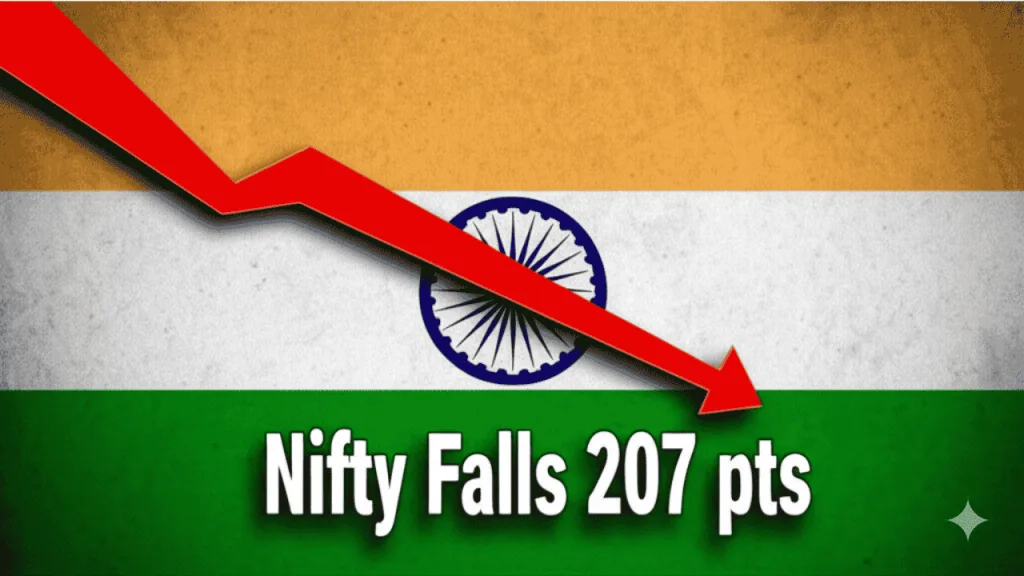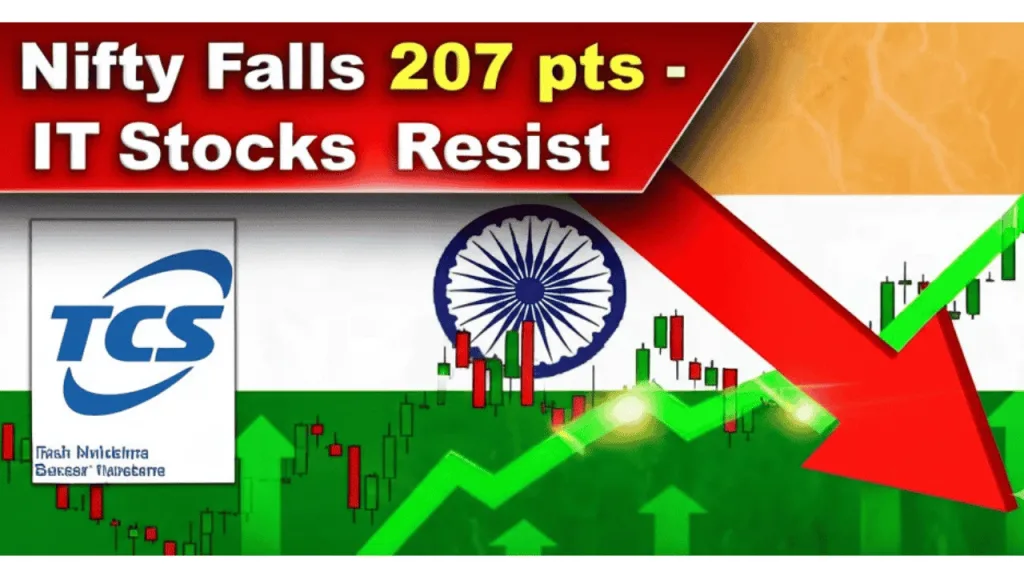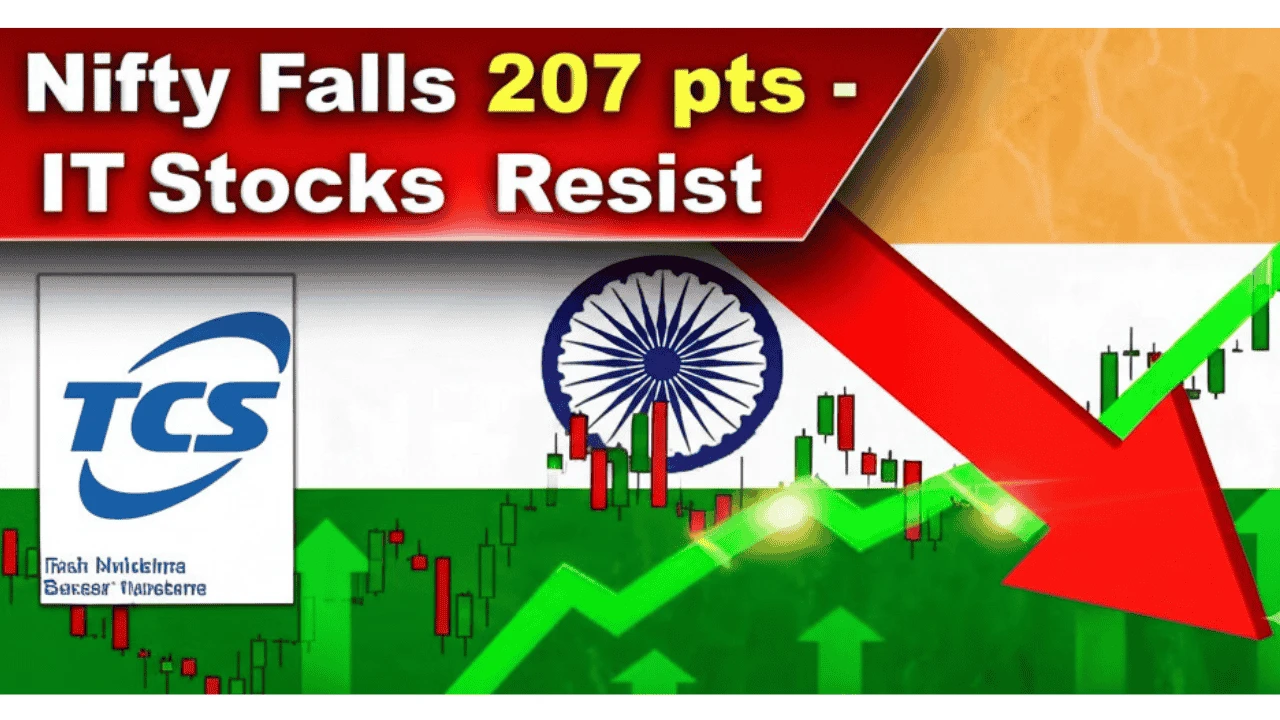Indian equity markets closed the final trading session of the week with steep losses, rattled by escalating geopolitical tensions between India and Pakistan following a deadly terrorist attack in Pahalgam. Despite a promising start, the day turned turbulent as traders reacted swiftly to the news, triggering heavy intraday selling.
Early Gains Fade Amid Escalating Border Tensions
Markets opened on a positive note, with the Nifty registering a gap-up of nearly 43 points at 24,289. The index surged to an early high of 24,365 within the first 15 minutes of trade, as investors initially focused on strong global cues and domestic earnings optimism. But the early momentum was short-lived.
As reports of heightened military activity and potential retaliation from India emerged, investor sentiment swiftly reversed. The Nifty plunged to an intraday low of 23,847—a fall of more than 500 points from the peak. Although some recovery was seen in the latter half of the session, it wasn’t enough to erase the damage.
By the closing bell, the Nifty was down 207 points at 24,049, while the Sensex shed 588 points to settle at 89,212. The Nifty Bank was also hit hard, falling 537 points to close at 54,664.

Broad-Based Sell-Off Across Sectors
The weakness was widespread. Out of 50 Nifty stocks, 41 closed in the red. The midcap index slumped 2.25%, reflecting the cautious tone across the broader market. Of the nearly 25,000 stocks traded, only 455 ended in the green.
While most sectors faced the heat, IT stocks bucked the trend. Tech Mahindra, TCS, Infosys, and mid-tier names like Persistent Systems, Coforge, and Emphasis saw buying interest, thanks to their defensive appeal in volatile markets.
SBI Life also stood out, rising nearly 5% after reporting strong quarterly results. However, that was an exception in an otherwise weak session.
Financials, Real Estate, and Energy Drag
Financial stocks were among the biggest losers. Shriram Finance fell 8% post-earnings, while Angel One dropped 7%. SBI Card declined 6.5%, and major public sector banks—PNB, Canara Bank, Central Bank, and IOB—shed between 3.75% and 4.75%. Axis Bank fell 3.5% following its earnings release.
Real estate and energy counters also witnessed sharp declines. DLF, Godrej Properties, and Sobha lost over 4%, while Adani Green, Adani Solutions, and Reliance Power slipped 5–7%. The Adani Group broadly underperformed, with Adani Enterprises and Adani Ports falling nearly 5%.
Pharma stocks joined the sell-off, with Granules, Biocon, Glenmark, and Lupin all down 4–5%. Auto stocks like Ashok Leyland, Tata Motors, and Bajaj Auto saw profit-booking, sliding 2–3%.
Institutions Buying into the Dip
Despite the turmoil, both Foreign Institutional Investors (FIIs) and Domestic Institutional Investors (DIIs) were net buyers, offering a measure of stability. Market participants interpret this as a sign of confidence in India’s longer-term growth trajectory, even amid short-term headwinds.
Analysts noted that the Nifty found support near 23,850, a level where strong buying emerged. This zone—along with the 23,750 mark—is now viewed as a critical support area. Resistance remains firm around the 24,150–24,250 range.
Looking Ahead: Volatility Likely to Persist
Next week promises to be eventful. With markets shut on May 1 for Labour Day and the release of Q1 GDP data on April 30, volatility is expected to continue. Traders will also keep a close eye on earnings from heavyweight companies, including the State Bank of India.
More critically, all eyes remain on New Delhi for a potential response to the Pahalgam attack. Any decisive move could sway market sentiment sharply in either direction. In times like these, clarity from policymakers becomes crucial.

Stay Cautious, Stay Invested
Experts advise investors not to interpret the current correction as a breakdown in fundamentals. “This isn’t a structural decline. It’s a sentiment-driven dip,” said a senior equity strategist. “For long-term investors, this presents opportunities to accumulate quality stocks at lower levels.”
The market, they note, thrives on certainty. Until there’s resolution or clarity on the geopolitical front, expect volatility to remain high. Patience and discipline will be key.
